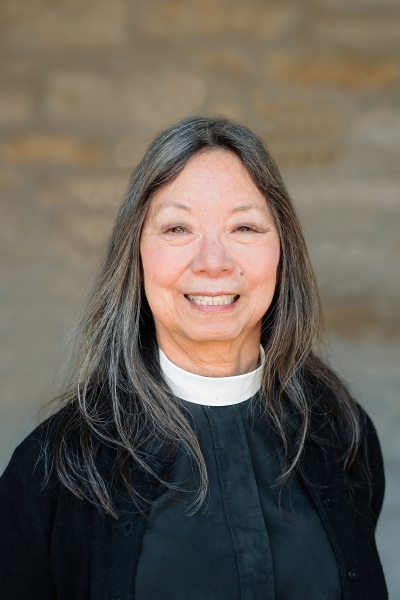Dec 21, 2023 |
The Christ Within Us
| The Rev. Joanna Leiserson
The Christ Within Us
In September, after I’d been here at Redeemer for only one month, I had to have cataract surgery. Never mind that I had decided when I was young that I would never need cataract surgery. Apparently it wasn’t my decision. But people told me that cataract surgery is no big deal. That’s true about the surgery. It’s a simple procedure. What WAS a big deal was the instructions the doctor gave me. He said that I could not wear eye makeup for a week after surgery. And I panicked. It sounds funny when I tell you how devastating this was for me, but here’s why.
When I was in seventh grade, my social studies teacher read aloud from our world history book a passage about the history of China. The book went into detail about the Chinese people—their weird singsong language, their strange habits, their yellow skin, and especially, their grotesque slanted eyes. As he read, my schoolmates turned around and made slanted-eye faces at me, laughing. It was humiliating to my core. I felt deep, deep shame at myself, and deep, deep fear of the world that suddenly made itself known to me. At that moment, I was exposed as an unacceptable human being—not truly human, but rather, Chinese. Lowly. Mostly, it was the eyes.
So from that time on, for the next sixty-plus years, I began wearing eye makeup—not to look better, but to hide who I really was—a person of Chinese descent with those strange habits and the grotesque slanted eyes. I put on eye makeup every single day, no matter what—even when I was sick, in the hospital, in the middle of the pandemic when I knew I would not be seen by anyone. I wore it to hide who I was from myself as well as from the world—lowly.
When I was in seventh grade, my social studies teacher read aloud from our world history book a passage about the history of China. The book went into detail about the Chinese people—their weird singsong language, their strange habits, their yellow skin, and especially, their grotesque slanted eyes. As he read, my schoolmates turned around and made slanted-eye faces at me, laughing. It was humiliating to my core. I felt deep, deep shame at myself, and deep, deep fear of the world that suddenly made itself known to me. At that moment, I was exposed as an unacceptable human being—not truly human, but rather, Chinese. Lowly. Mostly, it was the eyes.
So from that time on, for the next sixty-plus years, I began wearing eye makeup—not to look better, but to hide who I really was—a person of Chinese descent with those strange habits and the grotesque slanted eyes. I put on eye makeup every single day, no matter what—even when I was sick, in the hospital, in the middle of the pandemic when I knew I would not be seen by anyone. I wore it to hide who I was from myself as well as from the world—lowly.